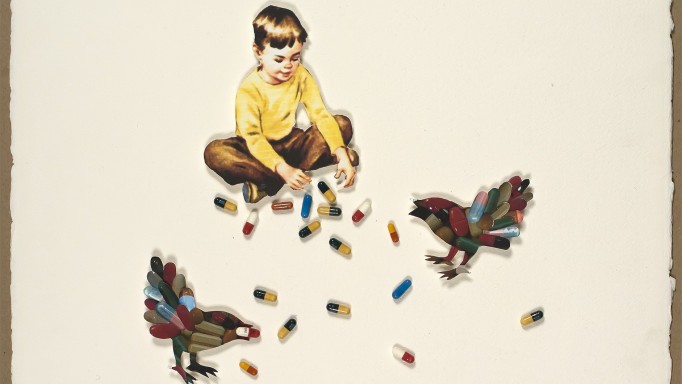Write a Comment
8 Comments
Jeton, sorry for the delay in responding to your post. PEP is an emergency intervention; I advocate providing the "starter kit" as a way of enabling people who believe themselves to have been possibly exposed to commence PEP immediately, rather than lose the three-day window of efficacy while they try to reach a doctor or access treatment. PEP has been proven to be highly effective in a circumstance where there is no other alternative for preventing sero-conversion. PREP, on the other hand, has mixed trial results but shows promise amongst gay men who are highly adherent. But while it might be effective on an individual level, adopting it as a prevention policy (that I believe has already undercut other prevention efforts) presents a potentially huge problem. I need more data on PREP before I can support an FDA indication for Truvada for this use. I agree with you that condoms have not and will not ever enjoy "ubiquitous, 100% usage", but that is not a reason to scale back our promotion of condoms as the most effective and least toxic way to prevent infection. My concern about PREP is less about the "threshold of statistical effectiveness" for its use by an individual than it is about the impact its wide-spread adoption will have on support for behavioral-based prevention strategies, its possible facilitation of resistant virus and its cost (especially when so many who desperately need treatment can't get it). Disinhibition is a concern and must be considered, but it is not, in my view, reason enough to oppose PREP or PEP. Survival itself can be considered a disinhibitor; POZ is a disinhibitor; anything short of showing us dead and dying is a disinhibitor. So that's not my primary concern about PREP.
I am not enthusiastic about PREP (pre-exposure prophylaxis, given to people deemed at high risk who are HIV negative), based on the available data, questions about its long-term efficacy, impact on prevention strategies that are far more effective (like condoms) and likelihood of facilitating the spread of resistant virus. There is a difference between its use by a highly-motivated individual who will be adherent to the regimen, versus adopting PREP as public health policy and providing it routinely to populations not likely to be as motivated or nearly as adherent. Physicians can already prescribe it for the former.
I too am troubled by the opposition to use of Truvada for pre-exposure prophylaxis. Sean's leap onto this drunk-driven bandwagon is especially perplexing, as Jeton points out. What is the logic here? If we give them pills, it will just encourage them to have (condomless) sex? That sounds just like the right wing's objection to condom education. (Remember? "If we tell them about condoms it will just encourage them to have sex...") Or is it the belief that, unless we can get EVERYONE into the lifeboats, we shouldn't save anyone? The fact is that the study was halted because, like previous studies, adherence was so poor that the results would have been meaningless. (Meaning that very few of the patients in the study were taking their medicine every day.) Results that are not meaningless: When people do take the medication faithfully as prescribed, it is very effective. In fact, Truvada's effectiveness as PreP approaches that of condoms. Neither condoms nor medications work well if you don't use them. Duh.
Sean, will you please explain why you oppose FDA approval for Truvada as PrEP, when in a recent blog you openly declare giving young men a "starter kit of 3-days worth of hiv medications" for PEP? you approve of POST-exposure prophylaxis, but not PRE-exposure prophylaxis? also, i'm perplexed by Dr. Sonnabend's claim that "recent preoccupation with PrEP may well have damaged efforts at HIV prevention education with encouragement and support for continued condom use"...outside of the insular world of all-things-HIV, most media coverage of PrEP stopped and started at the "44% effective" figure. this is hardly a sell-able prevention ratio. overall, i get the impression that many at POZ refuse to accept the reality that, for various reasons, condoms will never enjoy ubiquitous, 100% usage. if some of you DO accept that fact but do not think PrEP in its current form is a worthy addition to the prevention arsenal, then i would ask: "what threshold of statistical effectiveness must PrEP reach before you will approve of it? Also, besides simple effectiveness, what OTHER criteria must PrEP reach before you'd approve of it?" then again, i suspect some people will object to PrEP even more if it becomes more effective...the more effective and accessible PrEP becomes, the more "disinhibiting" the effect it's likely to have. do POZ staffers have any vision of some future age where such inhibition is unnecessary? i know Larry Kramer doesn't...just look at his recent ad in NEXT magazine where he presumes to tell all future generations "...you'll never be as free to do what we were free to do." if you accept that condoms and barrier-protection in general are unlikely to ever reach 100% usage (it won't), than making other forms of infection-prevention available is imperative. i'd like to see some consensus on the criteria that must be met by such new approaches. at this point i expect such discussion will reveal serious fault lines between the underlines assumptions of many.
My characterization was based on this paragraph from FHI's press release yesterday: "The decision to halt recruitment at this point indicates that the Independent Data Monitoring Committee which scrutinises the trial has come to the conclusion that even if another 2000 women were to be enrolled onto the trial and followed for 52 weeks, it is highly unlikely that any protective effect of Truvada that might emerge in this group would be enough to demonstrate a statistically significant benefit overall."
The clinical trial on the efficacy of PrEP was not halted because it was deemed unlikely to achieve the desired result, by which you probably mean that Truvada would have been shown to be effective. The trial was halted because it could not have answered the question of Truvada being effective or not. That's very different. It is about the power of the trial rather than that of the drug.
Thanks for bringing this to attention so promptly. The recent preoccupation with PrEP may well have damaged efforts at HIV prevention education with encouragement and support for continued condom use,the most effective means we have for limiting the sexual transmission of HIV. But on the other hand, people on the ground facing risk are probably wiser than some who advocate on their behalf. I suspect that very few would consider using a prevention intervention that cannot even halve the chance of acquiring a potentially lethal infection when a much more effective method is available that is also much cheaper and also safer.










harleymc
'The trial was halted because it could not have answered the question of Truvada being effective or not. That's very different. It is about the power of the trial rather than that of the drug.' It's not different. The study failed to find any statistically robust improvement in outcomes. This is scientific language for no demonstrated benefit. The sugar pills worked just as well. Following your logic, why not argue for issueing of sugar pills? So with no demonstrated benefit why is PrEP considered a good thing in this context, where is the science to show it works? The answer is that in this context there is no science that shows it works. So why on earth should funding be diverted from schemes that we know make a difference to one that doesn't show significant improvements? 'The fact is that the study was halted because, like previous studies, adherence was so poor that the results would have been meaningless.' That's right, it's a real world situation not a Panglossian 'best of all possible worlds'. We must deal with reality to stop a real killer. In this study the treatment is shown useless in the real world.
June 19, 2011